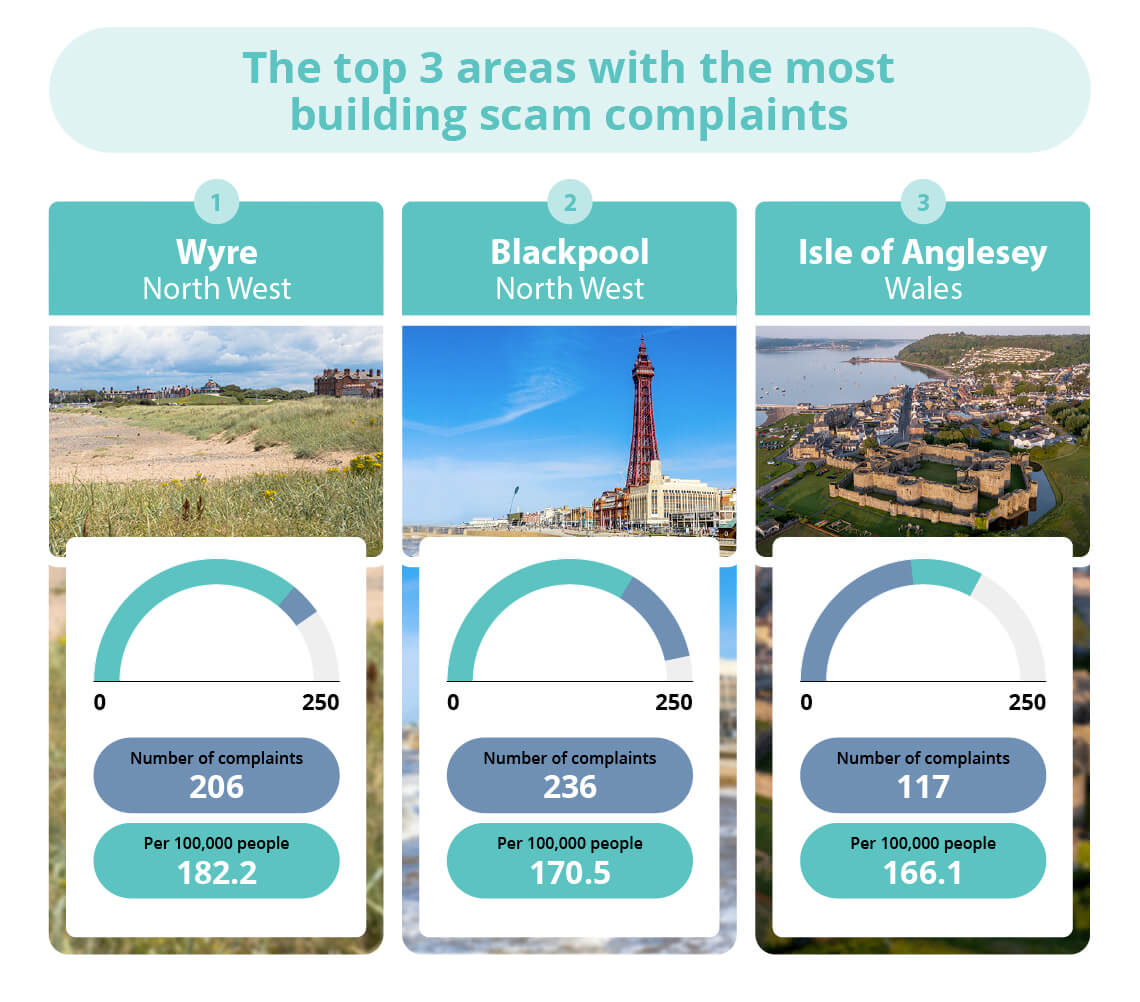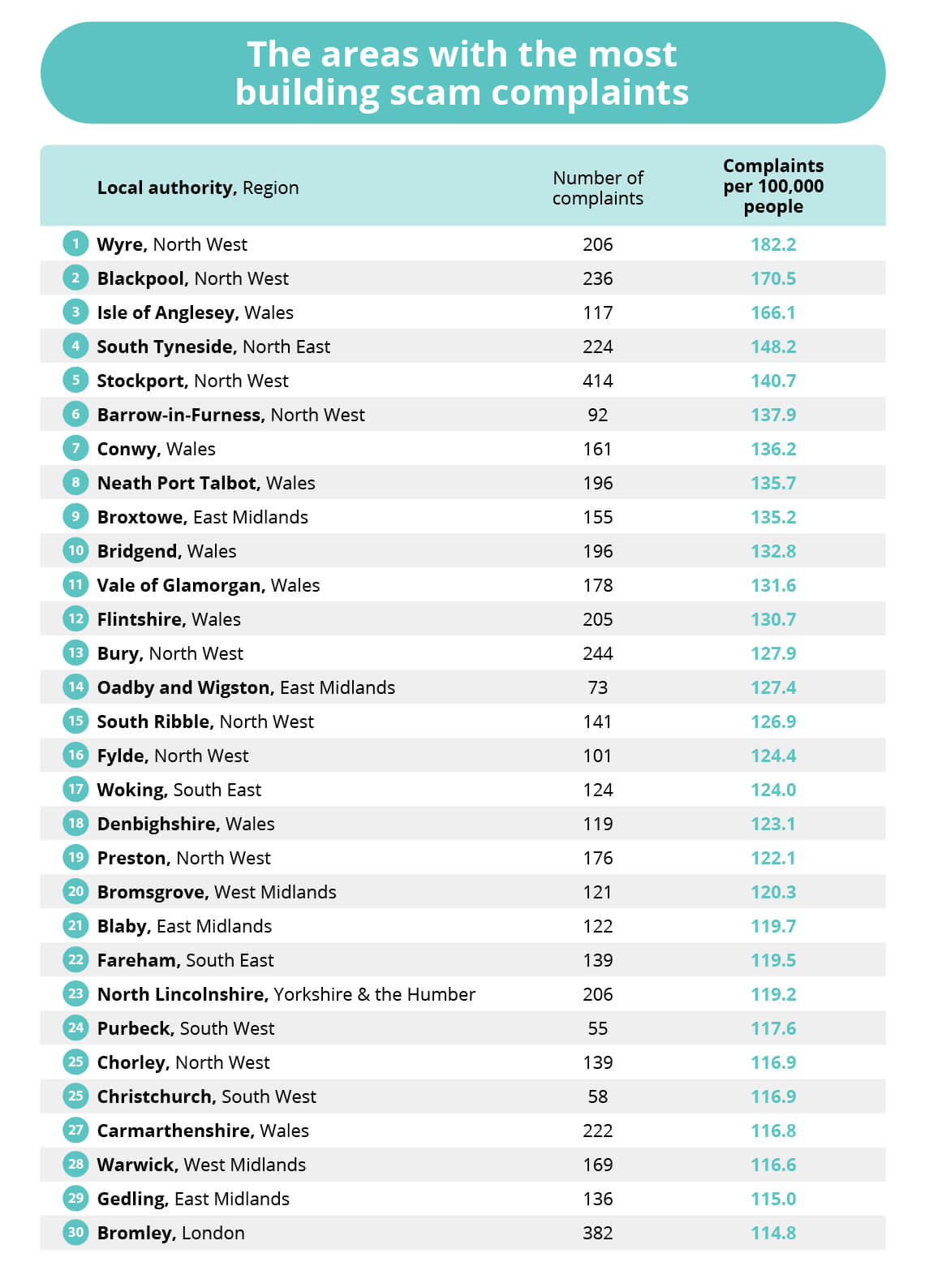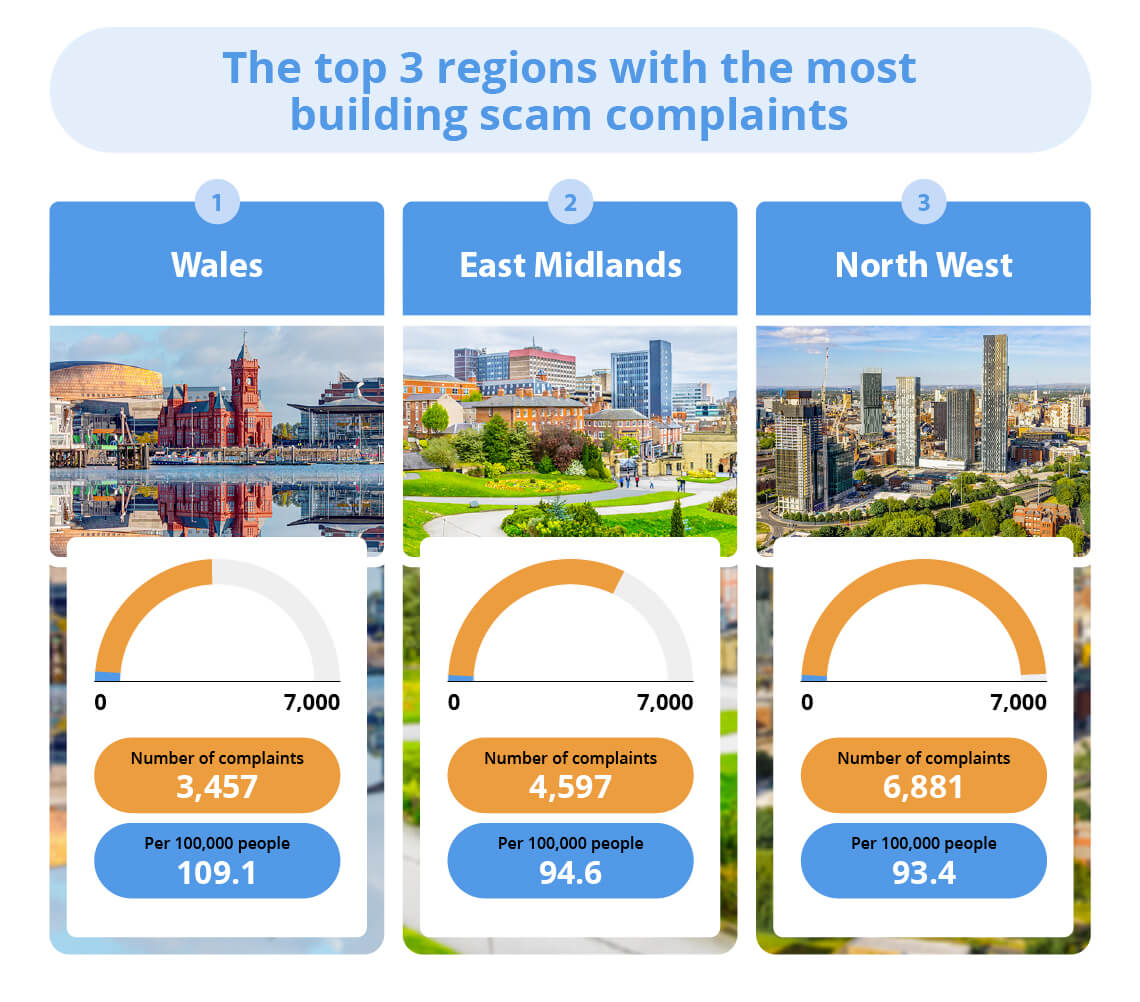Which parts of the UK have fallen foul of rogue traders the most often?
The majority of builders and tradespeople are good, honest professionals and the sector is driving incredible growth within the UK, but just like with any other service, you have to be on your guard against scams and dishonest practices.
And while it is only a small minority of bad apples, it’s still important to be wary when having work carried out and look out for reassuring signs that you’re working with a legitimate business, like branded workwear such as that provided by Clothes2order.
At Clothes2order we love helping our customers in the trade look professional, giving you one signal of confidence that you’re employing the right person for the job.
With the construction industry seeing massive growth recently we wanted to help advise you how to find the best tradespeople and look at the data to see where in the country you might want to be extra vigilant. To find out, we’ve looked at the number of complaints to Citizens Advice in the last year relating to:
- House construction
- Home maintenance & improvements
- DIY & handypersons
The areas with the most building scam complaints
1. Wyre, North West
Number of complaints: 206
Complaints per 100,000 people: 182.2
When we look at the total number of complaints compared against the population, the borough of Wyre in Lancashire came out as the worst area for building scams, with 206 in total and 182.2 per 100,000 people. Wyre is located in Lancashire, divided by the river of the same name.
2. Blackpool, North West
Number of complaints: 236
Complaints per 100,000 people: 170.5
Interestingly, the two areas with the highest proportion of complaints were both located right next to each other, with Blackpool coming in second place. Better known as a seaside holiday destination and for its Pleasure Beach amusement park, Blackpool had 236 complaints in total in the last year and 170.5 per 100,000 people.
3. Isle of Anglesey, Wales
Number of complaints: 117
Complaints per 100,000 people: 166.1
The worst area outside of the North West for building scams was the Isle of Anglesey in Wales, with 117 complaints in total and 166.1 per 100,000 people. Anglesey, much like Wyre, has one of the highest average ages in the country, which unfortunately reflects the fact that it’s often older people who are targeted by such scams.
The regions with the most building scam complaints
1. Wales
Number of complaints: 3,457
Complaints per 100,000 people: 109.1
2. East Midlands
Number of complaints: 4,597
Complaints per 100,000 people: 94.6
3. North West
Number of complaints: 6,881
Complaints per 100,000 people: 93.4
While each of the two local authorities with the most complaints were located in the North West of England, Wales was actually the region that had the highest proportion at a regional level, with 109.1 per 100,000 people.
The North West actually came in third, with 93.4 complaints per 100,000 people, with the East Midlands in second, with 94.6 per 100,000 people.
How to avoiding building scams
While we must stress that rogue traders are a minority, it’s still important to know what to look out for and how to avoid falling victim to a scam yourself.
Never pay full upfront
If a builder or tradesperson asks you to pay for the full job, or even a significant portion of it, before even starting any work, then alarm bells should be ringing. While a very small deposit may be acceptable in some cases, you should never turn over a significant amount until the work has been carried out. One excuse commonly used is that the contractor needs to order tools or materials, however, suppliers will usually provide these on credit.
Note the fine print
When initially agreeing to have work carried out, make sure that everything is fully transparent and clear. Make sure that the contractor is fully aware of the work that is expected to be done and that this will all be covered in the price that has been agreed so that you’re not hit with any extra charges further down the line.
Don’t book work on the spot
If someone comes to your door offering a deal that seems too good to be true, then it probably is. A common approach from rogue tradespeople is to pretend that they have materials left over from a job down the road and don’t want to make a loss. However, “unforeseen circumstances” will usually lead to the price of this job escalating significantly before you know it.
Methodology
All figures were sourced from Citizens Advice’s Consumer Advice Trends July 2021 and show the number of complaints made to Citizens Advice for the following three categories in the previous twelve months:
- House construction
- Home maintenance & improvements
- DIY & handypersons
Note that data was only available for England and Wales.






